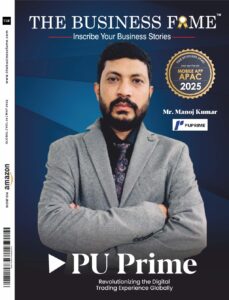The modern FinTech world has evolved at a rapid pace and has transformed the way people handle their wealth. Today, virtually all types of online payment need a credit/debit card and/or bank account. For those consumers who are unable to use a bank account or card, or unwilling to because of safety or privacy concerns; they are excluded from engaging entirely in the online world, which is where much of today’s lives reside.”
But a part of the business has been left behind – remittances, i.e. migrant employees sending money back home to families. Immigration is usually accompanied by a series of financial insecurities and issues. Although new emerging innovations such as bitcoin and blockchain offer possibilities for modernization of the way payments are carried out across territories, tight banking laws render money transactions difficult for expatriates.
The return of cash to their countries of origin and the settlement of banks is a popular issue for many migrants around the world, as it may be challenging to open a bank account in the host nation. The only alternative until recently was to use cash transfer agencies who charge a large service fee for wiring cash to a central office in their own region.
“We are a Financial Inclusion company with a mission to help the unbanked or underbanked to fully participate in the finance market”
new entrants have indeed introduced offerings based on cost and speed, yet all those are somehow bound by the online/app services require that the customer has a bank account. Pipit Global is here to change all that. With Pipit, the consumer has no account.
 Pipit is a secure online payment site for consumers to spend money directly and was created by Ollie Walsh, Julian Callaghan, and Rory Ryan. This is the world’s first such platform. The primary goal here is to assist migrants residing and operating across the globe, to pay expenses and move funds to overseas accounts at a fraction of the expense and time required by more conventional foreign money payment suppliers.
Pipit is a secure online payment site for consumers to spend money directly and was created by Ollie Walsh, Julian Callaghan, and Rory Ryan. This is the world’s first such platform. The primary goal here is to assist migrants residing and operating across the globe, to pay expenses and move funds to overseas accounts at a fraction of the expense and time required by more conventional foreign money payment suppliers.
The original concept was created by Co-Founder and COO Julian Callaghan, who contacted Ollie Walsh, an expert in marketing and strategy specialist in order to assist him. Rory Ryan, an experienced developer, was called in later to fill on the technological side.
The power of Pipit lies in the large network of affiliate providers through four networks; and all Pipit end-users may deal in cash at a substantially cheaper rate globally, without any limitation, than their conventional methods. Pipit also believes in collaboration for mutual benefit. Where most companies would see competitors, Pipit sees partners.
The firm’s fundamental philosophy is that where a lack of confidence in financial services hinders the keeping of bank accounts, the true potential is through smart devices and the internet for market development and financial inclusion. However, in many developed nations, only if the physical infrastructure available — such as stable power and cell networks — facilitates this.
“Our unique B2B platform powers international cash payments so that our partners and customers can do the best they can without additional services costs”
Pipit also argues that digital payments are only a future aspect of FinTech. Digital payers should be able to safely, securely, and easily deposit and remove cash at cash-in and cash-out points, whether they are in the form of a post office, bank representative, a mobile money officer, or an ATM. CashTech innovations like Pipit are also a critical move in getting the unbanked community into the digital sector today.
Ollie explains in his own words asserting, “The initial model we developed was for cash payments for eCommerce transactions. This was to enable the financially excluded to participate fully in the online world. In the UK being unbanked costs around £1200 a year in excess payments. For example, paying for electricity with a meter is more expensive than paying by the bill. However, if you don’t have a bank account, you can’t have a bill pay account. The use case specific to Pipit is the unbanked pay more for basics by not being able to shop around either online due to inability to make a payment or physically due to lack of transport.”
“In 2015 we moved to the UK to participate in the Dot Forge Impact Accelerator and experienced being a migrant and the difficulties in making payments for necessities such as rent. This got us thinking that the use case for what we had built was broader than eCommerce payments. Participation in the accelerator allowed and encouraged us to explore the options. Once we started researching the remittance market and realized migrants were paying up to 9.5% in fees to send cash home, we knew we could make an impact.”
“Our model is the payment to account and not peer-to-peer and we work with partners for collections as opposed to having our own network. This model means we can make it much cheaper for migrants to support their families at home, getting more money where it is really needed.”
The Four Robust Pillars
Pipit uses a digital cash collection platform that can be integrated with a range of payment solutions; and has developed four services to enable migrants to access essential financial services internationally:
“We are not here just for the benefit of our shareholders and stakeholders, but for society”
Pipit Cross-Border Bill Payments
Any ex-pat can log in to one of Pipit’s partner platforms and select a bill to pay for their family —rent, electricity, water, phone, and car insurance to name a few. After choosing Pipit as their payment method the steps are as follows:
- Receive a barcode that appears in their smartphone
- Bring that barcode to any UK Post Office, scan it over the counter
- Pay the bill in cash
- Pipit then receives a notification about the transaction, and inform the partner who in turn update the account
The advantage of this payment method is that the person spending the money pays the bill directly without having an intermediary collecting the cash. In addition to that, bill payments through Pipit also contribute to significant savings, as they charge a service fee as low as 1.5% – which is 80% less than cash transfer service.
Pipitbanking
Using this service any migrant can transfer cash to a bank account in their home country. Pipit has currently partnered with Sterling Bank in Nigeria and T-Plus in Kenya.
eWallet
e-Wallets are designed for storing funds to make electronic payments for consumers who hesitate to use their debit and credit cards. When an eWallet is integrated with Pipit, users can load cash to their eWallet using the process outlined above. The funds appear instantly in the eWallet and the user can transfer them to their bank account, pay a bill, or add them to a savings account.
Pipit Pay-In-Person
The Pipit eCommerce solution allows consumers to pay for online orders with cash. This can be activated for in-country or cross-border payment. It appeals to consumers with no access to a payment card, or to those who have security concerns about online fraud and are reluctant to give personal details online.
“Instead of peer-to-peer sending cash, we enable cash to be loaded to an account – into a bank account at home, into an eWallet, to an eCommerce platform or to a biller”
Transactions for Tomorrow
Revealing future plans, Julian asserts, “To date almost all our transactions have been the UK to West Africa. We are now expanding out our network of collection partners across EU, North/South America, Africa, GCC region as well as added Payment Platforms to receive payments in Developing Nations.”
He concluded the interview by stating, “The bigger we grow and the more transactions we make, the more good we do.”










